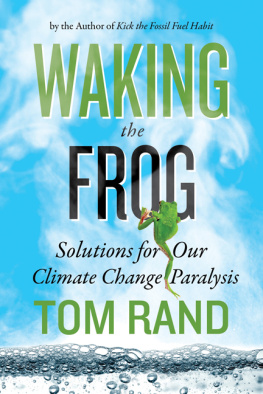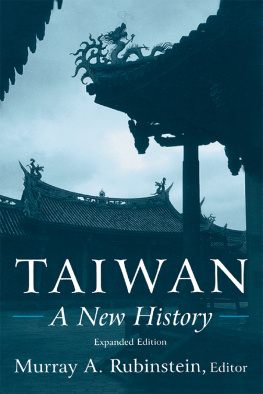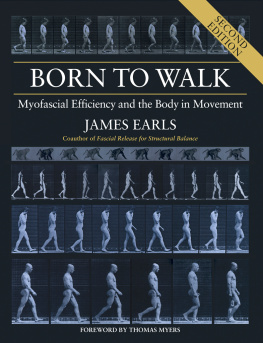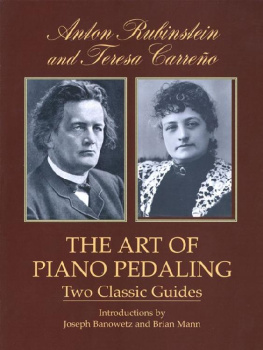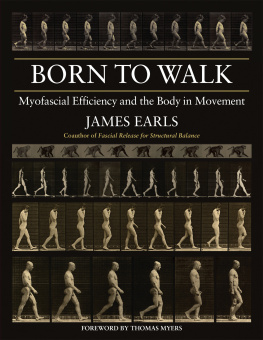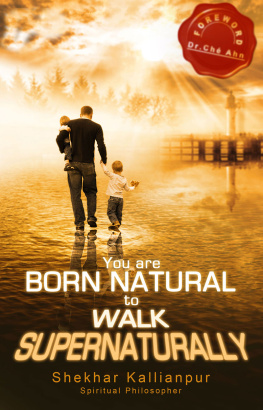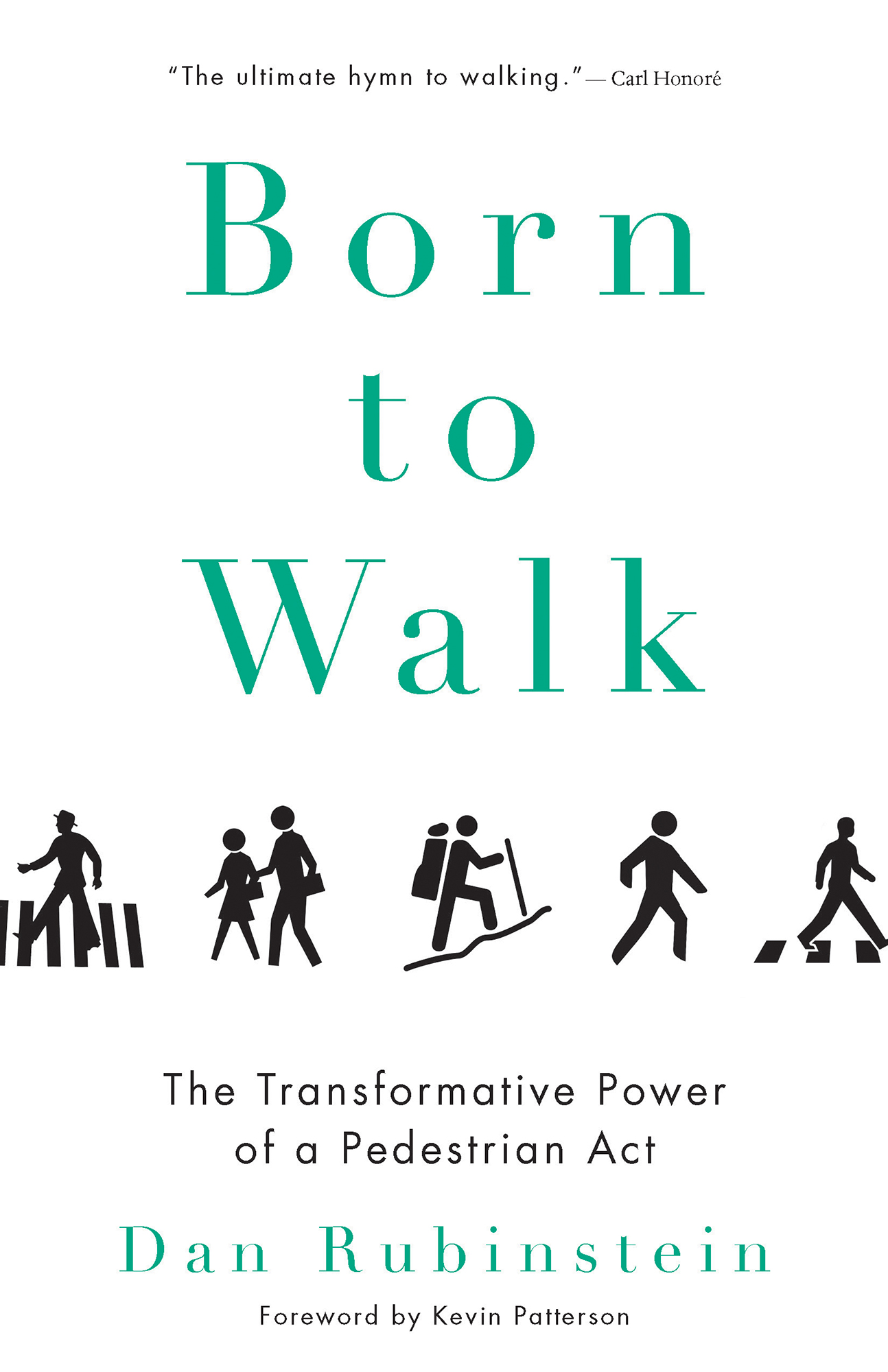FOREWORD
by Kevin Patterson
The Anthropocene era is a consequence of technology. Humans have marked the world and prevail upon it because of our tricks: the toggle-headed harpoon and the internal combustion engine and the electrical grid. These tools have allowed us to be become the next asteroid. The changes they have permitted us to make upon the planet seem as unstoppable as a mass of space rock headed right for us. And they are, so long as we remain on this path, motionless and oblivious.
Motion is the subject of this book. Move, and everything changes, Dan Rubinstein writes: the way people think, how we fear, and how we understand ourselves.
A short while ago I walked along the shore of Hudson Bay. The ice had not come in yet and I watched the tundra carefully. Polar bears had come into town the week before. The reason I felt safe was that the man I was walking with carried a rifle and a GPS. People cannot outrun polar bears and we do not have the internal guidance systems of snow geese. This is the standard construction: we are the weakest animals in nature, but to compensate we have created these technologies to make ourselves formidable. And so we subdue the frontiers because they frighten us and because we can.
Its all wrong. Humans are magnificent large mammals, as wondrous as the 200-year-old bowhead whales in Hudson Bay, or the bears, or cheetahs. What those animals are to the deep dive, to strength and the sprint, we are to the fast walk. Even if we forget it, humans are defined by our ability to walk. Our bipedalism, that is, our anatomy, not our tools, makes us uniquely efficient and fast. My grandfather claimed that over middle and long distances he could walk down a deer, so long as he could follow the track. Fresh snow in the morning meant venison by nightfall on his Peace River depression-era farm. And not a bullet need be wasted.
Hominids spent a million years on the Serengeti walking in the grass. Bruce Chatwin wrote that our bodies, from our brains to the structure of our big toes, are formed for one mission: long journeys on foot. And so long as we made them, humans understood our own capacity. But our tools have made it possible to not do the thing our bodies are optimized for. And so we forget how good we are at it, and we reach the worst possible conclusion: we are weak, unless we depend on tricks.
The Inuit on the shore of Arctic Ocean were among the last of the great walking cultures to settle. When they came into the little towns built by the government they ceased the relentless walking that permitted them to pull a living from a land without trees or even vegetation for all but a couple months of the year. The Thule people walked from Alaska to Greenland a thousand years ago, and until Dylan went electric there were still families moving constantly between hunting sites, watching the horizon and listening to the sound of boots in the snow.
The elders who remember that life do not romanticize it. But they knew then that if they hunted as hard as they could and scoured the land and sea for food, they could keep most of their children alive. It was a dangerous life and many died of hunger and predation and cold, but they were not afraid of the land itself. There are no families living self-sufficiently on the tundra now and there probably arent any who could. There are no people walking here or anywhere on this planet who can just keep going. And because we do not walk upon the land like that anymore we cannot know it the way we did. We certainly do not feel it. Which allows us to treat it the way we do.
When we stop walking we treat the land that is, everything badly, and we do not spare ourselves. Twenty years ago there were no Inuit with obesity-related diabetes in the towns I worked in along the west coast of Hudson Bay. Now diabetes is exploding along with waistlines and the Inuit are quickly coming to resemble all the sedentary people everywhere. Social nets are fraying and diabetes and suicide have become the new white bears, but with far sharper claws and larger appetites.
This is what Dan Rubinstein has written his book about: the beauty of humans walking, and what is lost when we stop. Its a gorgeous reaffirmation of our place on the planet and among our fellow creatures. He shows that, as devastating as the consequences of immobility have been, movement, and all that it brings, metabolically and philosophically, can be recaptured so easily. Just stand up and walk outside. Go. And keep going.
Kevin Patterson is a medical doctor who works mostly in British Columbia and Nunavut. He is the author of the novel Consumption, the short story collection Country of Cold (which won the Rogers Writers Trust Fiction Prize), and the memoir The Water in Between: A Journey at Sea, and the co-editor of Outside the Wire: The War in Afghanistan in the Words of Its Participants.
PROLOGUE
Perhaps walking is best imagined as an indicator species, to use an ecologists term. An indicator species signifies the health of an ecosystem, and its endangerment or diminishment can be an early warning sign of systemic trouble.
Rebecca Solnit, Wanderlust: A History of Walking
I walk in order to somatically medicate myself against the psychosis of contemporary urban living.
Will Self, New York Times
The wind whipped across the frozen lake. Wet snow stung my face. It had been falling steadily since dawn, weighing down the scraggly branches of the black spruce and balsam fir that crowded the blurry shoreline. Now mid-afternoon, the flat February light was fading.
Chin tucked into jacket collar, wool toque pulled low over forehead, I shielded my eyes by studying my borrowed snowshoes, glancing up every few strides to gauge my bearings. It was a tedious way to move forward, more shackled than Shackleton. But it gave me plenty of time to think.
Lurching around the park down the street from my semi-suburban bungalow for an hour, I realized, might not have been sufficient preparation. My back ached from pulling a cheap plastic sled laden with 50 pounds of warm clothing and camping gear. I was sweaty, which can beget trouble on a winter expedition. I was thirsty: more trouble. There was chafing. And it was only the first day of a two-and-a-half-week trek. We had another 220 miles to cover.
The distance was daunting, but more so the prospect of travelling through the forest and sleeping in the snow with 60 strangers, all of whom were either Aboriginal or francophone, or both. As a unilingual Anglo urbanite accustomed to solo summer hikes and car camping, I was apprehensive about such close quarters. In fact, this whole trip charted unfamiliar turf. I knew where I was (roughly) and where we were going (vaguely), but I wasnt convinced I could get there. And, perhaps most worrisome, I had lost track of why I was trying.
There was only one certainty: it was too late to go back.
A search for direction sent me on that winter journey. The world was spinning too quickly. I needed to recalibrate. To slow down.
So I turned to an old habit.
Walking.
Until the previous year, I had followed a conventional trajectory: a happy childhood; a loving marriage; two beautiful daughters; a comfortable house; holidays on the beach; a small cushion in the bank. My career also tacked a standard path, from sports writing and newspaper reporting to a decade as a magazine editor, cresting at the top post at a respected publication. My biggest fears environmental apocalypse, global economic collapse, runaway technology, retirement savings were abstractions. With solid First World footing, I was confident I could muddle through, just like everyone else.

